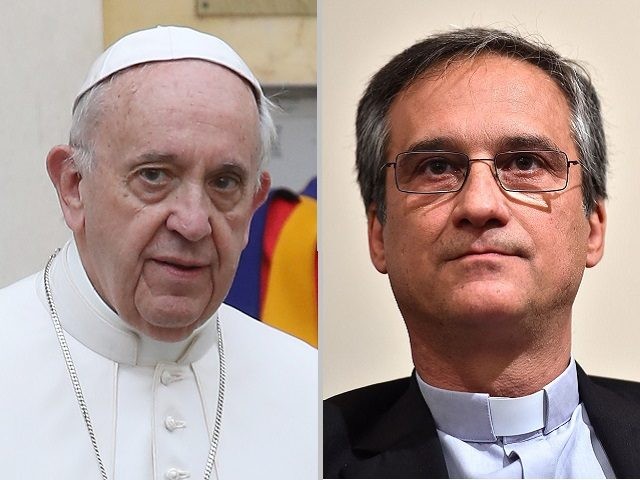Pope Francis has accepted the resignation of Msgr. Dario Viganò as head of the Vatican’s communications department following a week of controversy and outrage surrounding a doctored photograph of a letter from emeritus Pope Benedict XVI, which was distributed to journalists.
Msgr. Viganò had solicited a commentary from the retired Pope Benedict as an introduction for a new collection of books exploring the theology of Pope Francis. Benedict responded with a letter that opens on a positive note, praising Francis’ theological and philosophical training, but then proceeds to criticize the choice of one of the authors of the series, Peter Hünermann, who he said had “virulently attacked the magisterial authority” of Pope John Paul II as well as his own pontificate.
In the end, Benedict declined to write a preface for the series, citing his lack of time to read the 11 volumes as well as the dubious authorship of at least one of the books.
“I’m certain you can understand why I’m declining,” Benedict wrote.
At the launch for the series, however, Msgr. Viganò read a short selection from Benedict’s letter aloud, giving the impression that the retired pope endorsed the books while emphasizing the “spiritual continuity” between his pontificate and that of Francis. Soon afterward, Viganò’s office released a photo-shopped image of the first page of the letter, with the final two lines digitally blurred out and the second page covered by a stack of books.
Journalists immediately accused the Vatican communications department of propagating “fake news” for having digitally manipulated the photo of the first page of the letter and creating a false impression of its contents.
The Associated Press (AP) said that the Vatican’s manipulation of the photograph “violated photojournalist industry standards.” The missing content “significantly altered the meaning of the quotes the Vatican chose to highlight,” AP said, because they “suggested that Benedict had read the volume, agreed with it and given it his full endorsement and assessment.”
This accusation was aggravated by the fact that Pope Francis himself had recently come out strongly against “fake news.”
In his annual message for the World Day of Communications, the pontiff said he wished to contribute to “stemming the spread of fake news and to rediscovering the dignity of journalism and the personal responsibility of journalists to communicate the truth.”
Fake news “refers to the spreading of disinformation on line or in the traditional media,” he said. “It has to do with false information based on non-existent or distorted data meant to deceive and manipulate the reader.”
On Wednesday, the Vatican released a copy of the resignation letter of the head of the newly consolidated communications department, Msgr. Dario Viganò, as well as the pope’s letter accepting the resignation.
In a separate statement, the director of the Holy See’s Press Office, Greg Burke, announced that Francis had accepted the resignation presented by the prefect of the Secretariat for Communication.
Pending the appointment of the new prefect, “the department will be guided by the secretary of the same Dicastery, Msgr. Lucio Adrián Ruiz,” he said.
In his resignation letter dated March 19 and released March 21, Viganò said that in recent days “many controversies have arisen regarding my work which, regardless of intentions, destabilizes the complex and great task of reform which you entrusted to me.”
In his response, dated March 21, the pope said that after a “long and attentive reflection,” he had decided to accept the prefect’s resignation.
Francis said that Viganò will remain on in the Vatican’s communications department in an advisory capacity.
Follow Thomas D. Williams on Twitter Follow @tdwilliamsrome

COMMENTS
Please let us know if you're having issues with commenting.